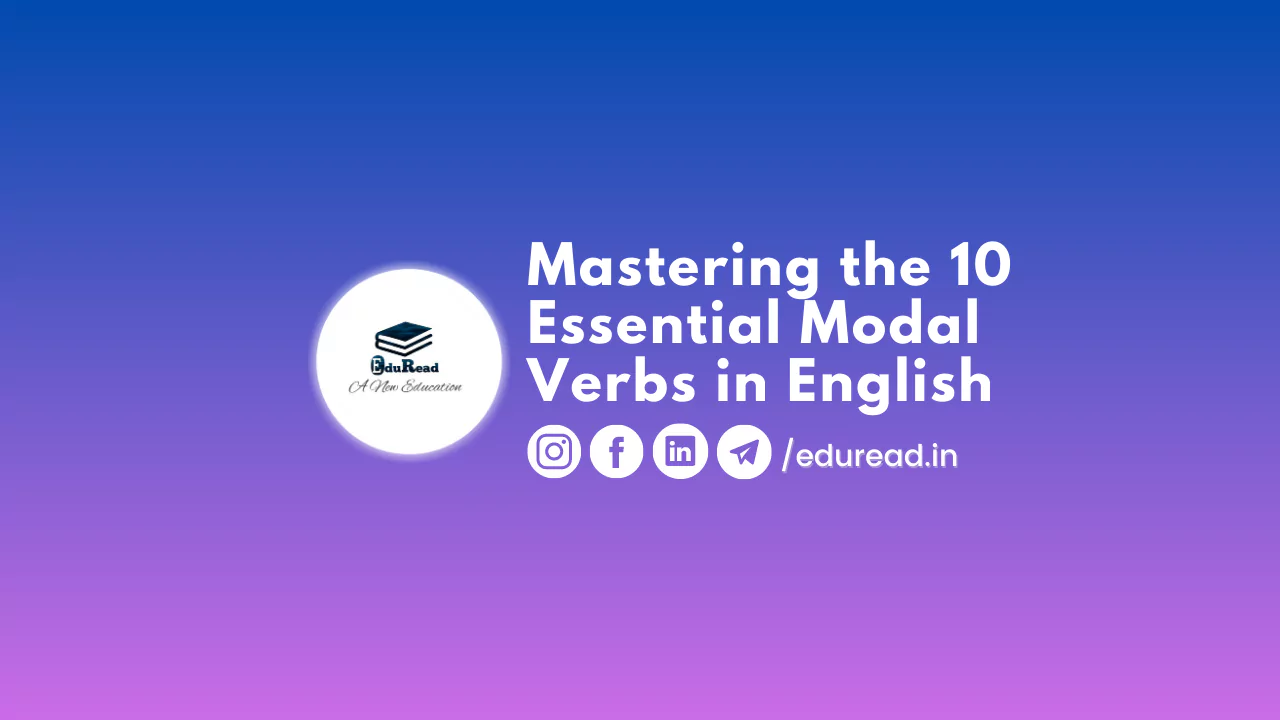Modal verbs are an essential part of the English language. They are used to express a range of meanings, including possibility, obligation, permission, and advice. In this blog, we will learn all ten modal verbs in English: could, would, should, might, must, can, shall, will, may, and ought to.
Could:
Could is a modal verb used to express past ability, possibility, or permission. For example, “I could swim when I was younger,” “Could you pass me the salt, please?” or “I could go to the party tonight.”
Would:
Would is a modal verb used to express past habits, preferences, or actions in hypothetical situations. For example, “I would always go to the beach with my family when I was a child,” “If I had more time, I would travel the world,” or “He would play the guitar every day.”
Should:
Should is a modal verb used to express advice or obligation. For example, “You should study for your exams,” “We should recycle more,” or “I should apologize for my behavior.”
Might:
Might is a modal verb used to express possibility or uncertainty. For example, “I might go to the concert if I can get tickets,” “It might rain today,” or “She might be busy, so I will call later.”
Must:
Must is a modal verb used to express obligation or necessity. For example, “I must finish my homework before tomorrow,” “You must follow the rules,” or “We must save the environment.”
Can:
Can is a modal verb used to express ability, permission, or possibility. For example, “I can speak Spanish fluently,” “Can I use the restroom, please?” or “We can leave early if we finish our work.”
Shall:
Shall is a modal verb used to express suggestions or future events. For example, “Shall we go to the cinema tonight?” “I shall see you at the party,” or “We shall discuss the details tomorrow.”
Will:
Will is a modal verb used to express future events or willingness. For example, “I will meet you at the airport,” “She will help you with your project,” or “They will donate to charity.”
May:
May is a modal verb used to express permission or possibility. For example, “May I have a piece of cake?” “It may rain later,” or “He may come to the party if he is free.”
Ought to:
Ought to be a modal verb used to express advice or duty. For example, “You ought to exercise regularly,” “We ought to respect our elders,” or “He ought to apologize for his mistake.”
Conclusion
In conclusion, modal verbs are essential in English, as they help us express a wide range of meanings and functions. By learning all ten modal verbs, you will have a better understanding of how to use them in various situations. So, keep practicing and using these modal verbs to enhance your English language skills.
Follow Us for more such content to improve your speaking skills:
To know more, check out here: https://eduread.in/14-advanced-english-phrases-for-daily-life/
And visit us for more
.
